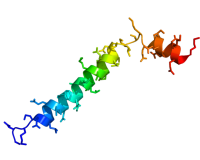Introduction
Peptides are short chains of amino acids, the building blocks of proteins. They have become increasingly popular in the fitness industry to enhance athletic performance and promote muscle growth. However, there needs to be more clarity and misinformation about what peptides are and how they work, making it difficult for fitness enthusiasts to make informed decisions about their use. This article will provide a comprehensive guide to peptides for fitness, covering what they are, how they work, their benefits, and potential risks and side effects.
What are Peptides?
Peptides are short chains of amino acids linked together by peptide bonds. They are called “building blocks” of proteins, which comprise longer chains of amino acids. Peptides can have various functions in the body, including serving as hormones, neurotransmitters, and enzymes. They can also play a role in regulating cellular processes, such as cell growth and division.
How do Peptides Work for Fitness?
In the fitness industry, peptides are often used to enhance athletic performance and promote muscle growth. The most commonly used peptides for these purposes are growth hormone-releasing peptides (GHRPs) and growth hormone secretagogues (GHSs).
- GHRPs stimulate growth hormone (GH) from the pituitary gland. GH is a hormone essential for growth and development. It has anabolic effects, promoting the growth of muscle and bone tissue growth.
- GHSs, on the other hand, stimulate the secretion of GH differently by binding to specific receptors on the pituitary gland. By increasing GH levels, GHRPs and GHSs can enhance athletic performance and promote muscle growth.
Benefits of Peptides for Fitness
Peptides are amino acid chains that play a crucial role in our bodies. They are involved in various physiological processes, including growth, metabolism, and cell communication. Peptides can be found in many forms, including hormones, neurotransmitters, enzymes, and structural proteins. In the fitness industry, peptides are becoming increasingly popular due to their numerous benefits for athletes and fitness enthusiasts.
1. Boosts Muscle Growth
One of the most significant benefits of peptides for fitness is boosting muscle growth. Peptides like IGF-1 and HGH are known for their anabolic properties, which promote muscle growth and repair. These peptides stimulate protein synthesis, which is essential for building muscle mass. The increased protein synthesis also helps to reduce muscle damage, allowing for a faster recovery after exercise.
2. Enhances Endurance and Performance
Peptides can also help to enhance endurance and performance. Some peptides, such as erythropoietin, stimulate the production of red blood cells, which can improve oxygenation and endurance. Others, such as growth hormone-releasing peptides, have been shown to increase strength and power, allowing athletes to perform at a higher level. Additionally, some peptides can help to reduce fatigue, allowing athletes to train harder and longer.
3. Improves Fat Loss
Another benefit of peptides for fitness is the ability to improve fat loss. Peptides like CJC-1295 and GHRP-6 stimulate growth hormone release, which has been shown to increase fat loss. These peptides can also increase metabolism, helping to burn fat faster. Additionally, some peptides can help to reduce appetite, making it easier to stick to a diet and achieve weight loss goals.
4. Reduces Injury and Pain
Peptides can also help to reduce injury and pain. Some peptides, such as BPC-157, have been shown to reduce inflammation, which is often the cause of pain and injury. These peptides can also promote healing and repair, allowing athletes to recover faster from injuries. Some peptides can also help strengthen joints and connective tissue, reducing the risk of injury and pain.
5. Improved Bone Density
Peptides have been shown to impact bone density and strength positively. In one study, participants who took a specific type of peptide saw a significant improvement in bone density compared to the control group. This helps improve athletic performance and reduces the risk of osteoporosis and other bone-related conditions. With regular use, peptides can help athletes maintain a healthy and strong skeleton, promoting long-term health and longevity.
To summarize, peptides offer numerous benefits for fitness enthusiasts and athletes. From boosting muscle growth and enhancing performance to improving fat loss and reducing injury and pain, peptides have the potential to help individuals achieve their fitness goals. However, it is essential to consult with a healthcare professional before using peptides, as they can have potential side effects and may interact with other medications.
Potential Risks and Side Effects
Despite the potential benefits, there are also potential risks and side effects associated with using peptides for fitness. These include:
1. Hormonal Imbalances
By increasing GH levels, peptides can disrupt the natural and delicate balance of hormone levels in the body, causing imbalances. This can lead to various health issues, including infertility, mood changes, and abnormal growth patterns.
2. Acromegaly
Long-term use of peptides may increase the secretion of growth hormones. This can lead to acromegaly, a condition in which the hands, feet, and facial features become abnormally large.
3. Carpal Tunnel Syndrome
Injecting peptides can also cause swelling and inflammation in the wrist, leading to carpal tunnel syndrome, characterized by numbness, tingling, and weakness in the hand and fingers.
4. Gynecomastia
Peptides can cause an increase in estrogen levels. GH can cause an increase in the size of the breasts in men, leading to gynecomastia.
5. Hypoglycemia
GH can cause hypoglycemia, a condition in which the glucose level in the blood drops too low. In some cases, peptides can cause hypoglycemia leading to weakness, fatigue, and confusion.
6. Allergic Reactions
Peptides can cause an allergic reaction in some individuals. Symptoms can include itching, rashes, and difficulty breathing. If you experience these symptoms after taking peptides, seek medical attention immediately.
Conclusion
Peptides for fitness have become a popular trend in the health and wellness industry due to their ability to enhance physical performance, increase muscle growth, and reduce body fat. However, it is essential to note that peptides should be used under the guidance of a licensed healthcare professional to avoid any potential side effects. With the right dosage and administration, peptides can benefit athletes and fitness enthusiasts. Ultimately, the best way to determine if peptides suit you is to consult a qualified healthcare provider and assess your individual needs and goals.




